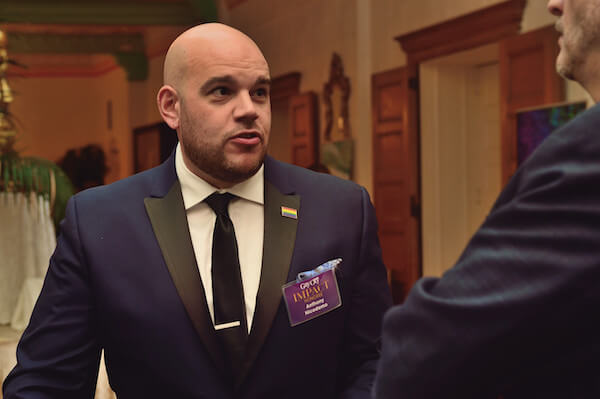Things don’t come easy for Terry Gilliam.
A documentary (“Lost In La Mancha”) famously detailed his quixotic and ongoing attempts to adapt “Don Quixote.”
Generally speaking, it’s hard to be a visionary filmmaker these days, when corporate sameness and safe bets are increasingly the cinematic norm.
So the filmmaker found it a bit odd that he didn’t have an especially hard time getting together his latest flick, “The Zero Theorem,” an existential dystopian effort about a corporate drone (Christoph Waltz) searching for the meaning of life.
“I hadn’t spent the amount of time I normally would beating the script [by Pat Rushin] to death and making it mine,” Gilliam says. “I just said, ‘OK, let’s go.’ And the process was different in the sense that everything was immediate.”
The film takes place in an impressively realized world filled with candy-colored, neon-lit streetscapes, canted angles and surrealist costumes that give the picture the feel of a Halloween fever dream.
It is, in other words, a world that could’ve used a budget of about $20 million, Gilliam says, instead of an amount that ultimately wound up at $8.5 million.
“That’s a different way of working, where you’re up against a time frame and financial frame that really makes you think fast on your feet,” Gilliam says. “So everything becomes instinctive rather than the other way of working.”
Gilliam and his crew consequently had to be creative when it came to costumes (wardrobes were purchased at a Chinese market), locations (Bucharest, where filming is relatively cheap) and more.
The result of Gilliam’s efforts can now be seen on VOD and in theaters beginning Friday. It’s a different film than “Brazil” and “12 Monkeys” but it certainly finds the filmmaker working on similar terrain in exploring an authoritarian world.
“I’ve always had an obsession about authority, a dislike of it, and so it’s always there,” Gilliam says. “It’s the forces that try to control our lives and whether we submit is one thing, whether we escape, whether we try to change it — they’re all different ways of dealing with it. We’re all in that situation in one form or another.”






































